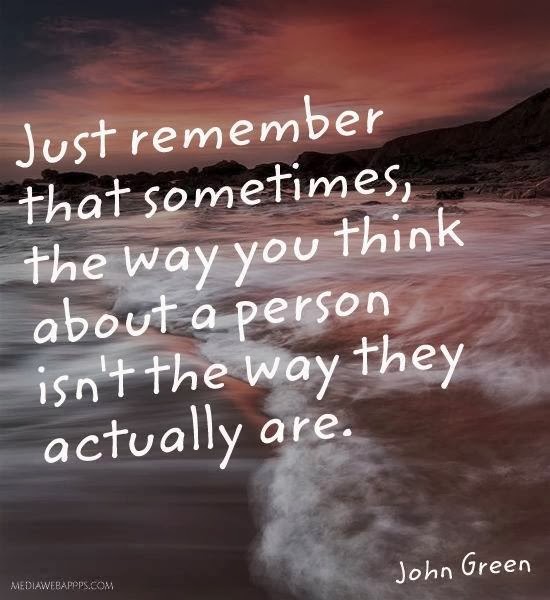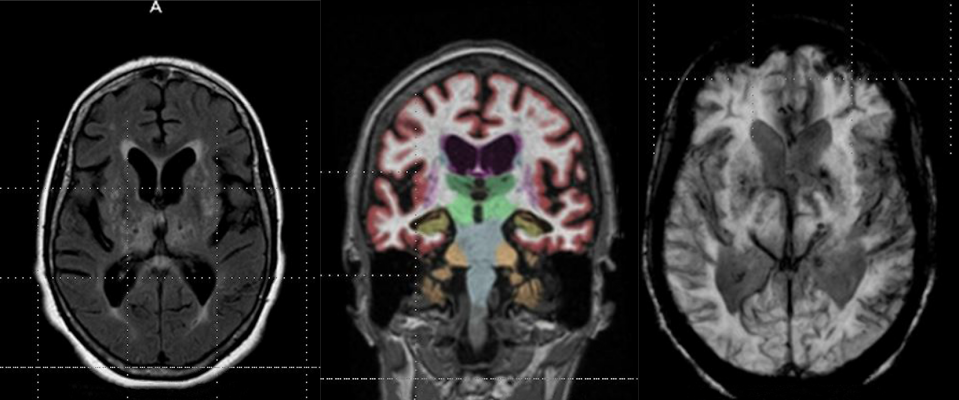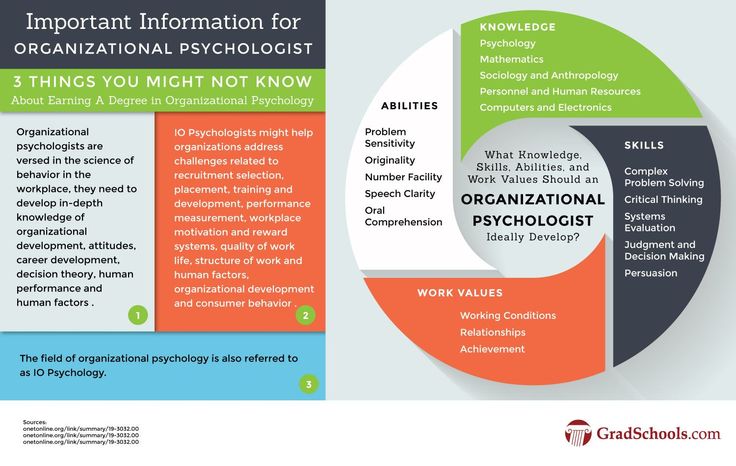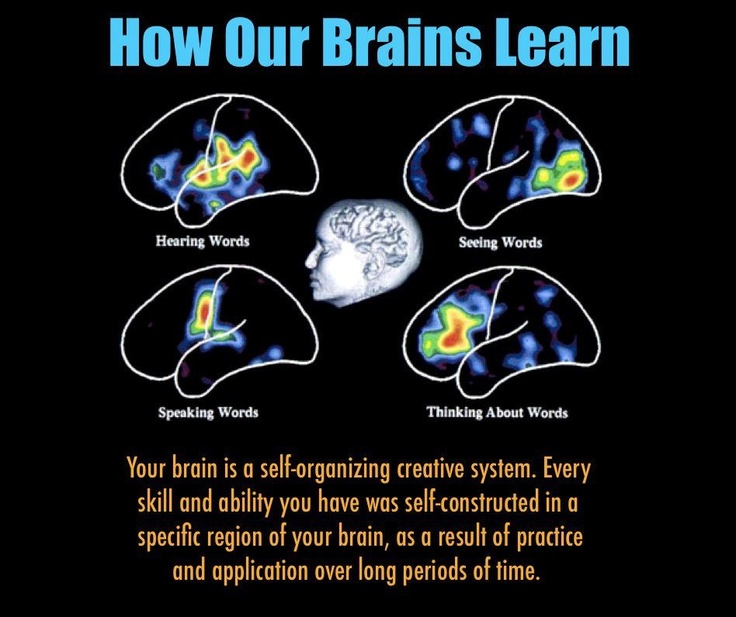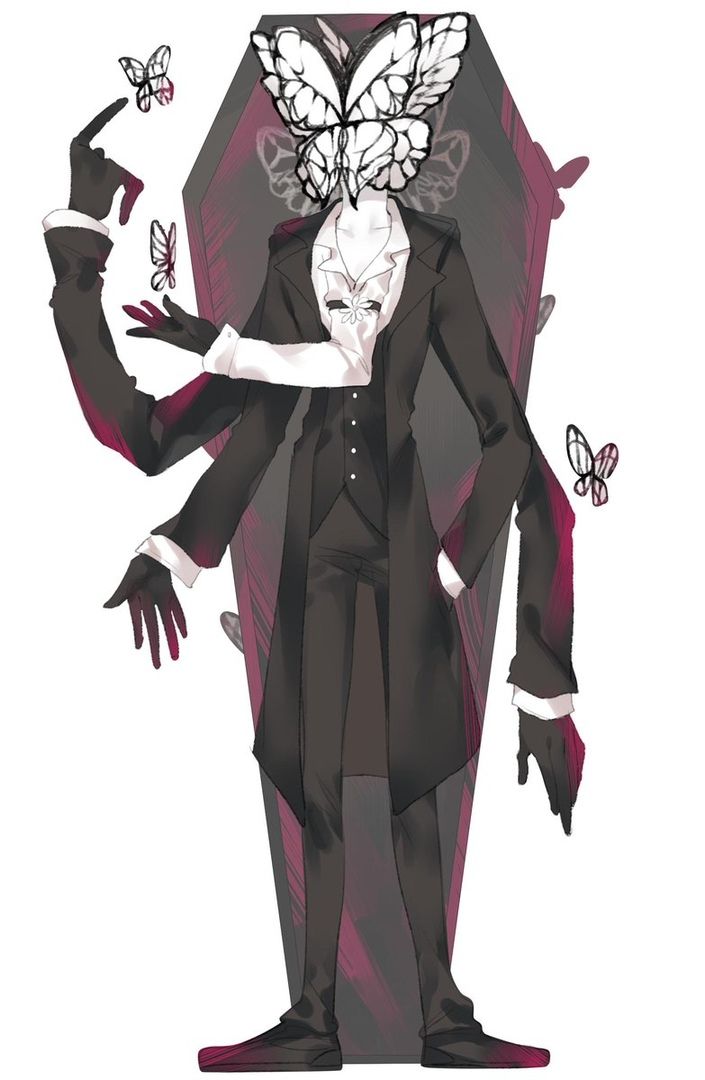How to tell if your therapist doesn t like you
7 Warning Signs To Look For
Last updated on July 21st, 2022 at 03:37 pm
As a BetterHelp affiliate, we may receive compensation from BetterHelp if you purchase products or services through the links provided.
Unfortunately, we are not taught how to discern when a therapist isn’t a good fit for us. You likely don’t know how to tell if your therapist doesn’t like you. A great therapist who gets you can completely change your life. However, dealing with the wrong therapist might leave us with more emotional wounds than when we first entered their office because we are frequently at a low point when we seek treatment. While some people can recover quickly after a negative therapy experience, others might dwell on it and place the blame for what went wrong on themselves.
In general, you would presume that all therapists are objective, sympathetic professionals who are open-minded. There are effective therapists and ineffective therapists, just like in any other profession. This post is not meant to dissuade you from getting support or to disparage the counseling industry as a whole. In fact, most people claim that treatment has helped them heal and change their lives.
There are many well-meaning therapists who really assist patients in overcoming their difficulties. However, not every therapist will be a good fit for you. This is particularly important if you think your therapist hates you. Continue reading to find out what warning signs to look out for and learn how to tell if your therapist doesn’t like you.
Read: What Is The 988 Mental Health Hotline
Post Contents
How To Tell If Your Therapist Doesn’t Like You: 7 Warning Signs
The last thing you feel like doing when you’re depressed is firing your therapist. (Wasn’t the point of seeing your shrink to feel better?) But just as in any other type of relationship, not everything goes as planned. The following are seven warning signs that your therapist doesn’t like you and that you likely need to find a new one.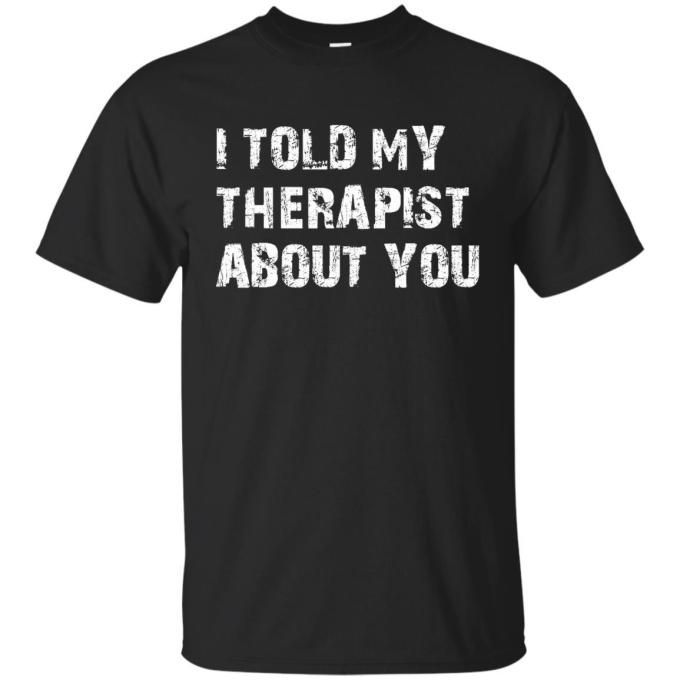
1. They Rush Through Your Sessions
The therapist you are seeing seems to always be in a hurry. She says that she has another appointment after yours and she is rushing through your session. She is asking you a lot of questions, but she is not really listening to your answers. She seems more interested in getting through your session so she can move on to the next one. This can be frustrating and it can make you feel like your therapist does not care about you. This is a leading sign that your therapist doesn’t like you.
Read: My therapist is frustrated with me
2. It Became Tense, And Now Things Are Strange.
You and your shrink had a heated conversation. Although emotions often run high when talking about difficult topics, that doesn’t mean that you should automatically stop seeing your mental health care provider. You’ll probably be able to get through the difficult situation if your therapist takes the initiative in the conversation. However, if issues are not handled and you continue to feel uncomfortable or misunderstood, it may be time to end the relationship.
As a BetterHelp affiliate, we may receive compensation from BetterHelp if you purchase products or services through the links provided.
3. They Make Little Or No Effort To Build Rapport
When you walk into your therapist’s office, especially after a couple of sessions, you may expect them to greet you warmly, ask about how you’re doing, and maybe shake your hand. However, if your therapist makes little or no effort to build a rapport with you, it can be a sign that they are not invested in helping you through your struggles. If this is the case and it makes you uneasy, it might be worth seeking out a new therapist who can provide the support you need.
4. They’re Flakey
Poor conduct isn’t only a dating thing. Unfortunately, it can also occur in a counselor’s office. You might be able to find a better fit with someone else if your therapist consistently arrives late for sessions, cancels at the last minute, has an untidy office, or answers calls while you’re there.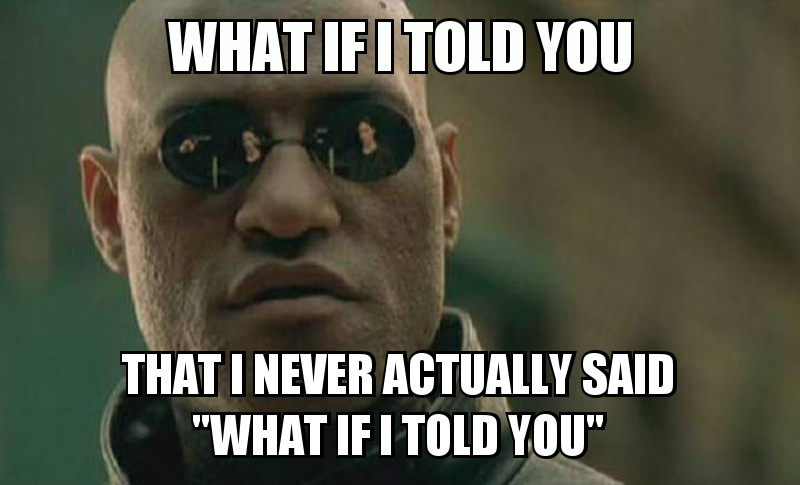
5. You’re Not Making Progress
The road through therapy might be difficult, but if you aren’t getting any better, that’s fairly telling. It’s possible that you and the therapist grow accustomed to and even enjoy discussing emotional concerns in great detail week after week month after month. No doubt this long-term commitment is helping your therapist to pay their mortgage every month, your work with them should consist of behavior-changing goals, and most issues should ideally have a time-sensitive solution. If they’re not helping you to make progress, then they potentially simply don’t like you.
6. Your Sessions Leave You Feeling Disappointed
Your emotions will likely be all over the place after your appointment with your psychologist; after all, it is therapy. However, it could be a warning sign if you leave each meeting feeling confused, depressed, or as though you didn’t get what you required. Keep in mind, that therapy sessions can be excellent and still generate unpleasant sensations at the same time, but if this persists over time, there may be a problem.
7. They Keep Judging You
You may believe that being shamed is a necessary component of treatment. Good therapists should be non-judgmental no matter what you say in your sessions. It doesn’t matter how many errors you’ve made or awful situations you’ve been in. You should never be judged by a therapist.
You have the right to a therapist who is kind and understanding. Even though they may occasionally push you, your therapist is still capable of empathetic communication.
In a therapy relationship, words are important. The progress of a client can be hampered by a therapist who is uncaring and condescending. Even when someone speaks with the best of intentions, the negative effect of their comments might aggravate clients who are attempting to rebuild their self-esteem.
Read: What if my therapist doesn’t believe me?
Final Thoughts
The level of compatibility between you and your therapist is a key factor in how well you do in therapy. Because you may have already been the victim of abuse or trauma, you shouldn’t waste your time and money on a counselor who re-traumatizes you. Take comfort if you’ve had some negative therapy experiences: If you know what a lousy therapist looks like, you can utilize that information to find a therapist who can provide you with the same degree of compassion that you readily give to others. And if you look out for the warning signs presented here, then you now know how to tell if your therapist doesn’t like you.
Take comfort if you’ve had some negative therapy experiences: If you know what a lousy therapist looks like, you can utilize that information to find a therapist who can provide you with the same degree of compassion that you readily give to others. And if you look out for the warning signs presented here, then you now know how to tell if your therapist doesn’t like you.
If you’re ready to move on and find a new therapist, BetterHelp is one of the best places to find one. They have therapists all over the country who are willing to listen to you and give you the kindness and respect that you deserve.
As a BetterHelp affiliate, we may receive compensation from BetterHelp if you purchase products or services through the links provided.
Category: Online TherapyTag: Anxiety Counseling, Couples Therapy, Depression Counseling, Family Counseling, PTSD Therapy, Sex Therapy, Trauma Therapy
What If Your Therapist "Hates" You?
Ah, the mailbag. The place where people help me write about things they want to know instead of the hash I’ve been slinging. Fine by me, you help keep me on my toes.
The place where people help me write about things they want to know instead of the hash I’ve been slinging. Fine by me, you help keep me on my toes.
For this installment, I received a short and sweet email that I know some folks can relate to. Once again, we have a disguised and distorted letter from an unidentifiable and possibly fictional reader:
“I think my therapist hates me. I’ve tried talking about it, he swears he doesn’t. Do you have another perspective?”
Yikes. Hated by a therapist? Hated? Everyone talks about the importance of the therapeutic relationship for a positive outcome. A good relationship can help activate a lot of healthy change. But hatred? What will that produce?
These concerns aren’t uncommon. You reveal a big secret and you’re afraid the therapist now thinks less of you. Your phone call isn’t returned, and you think your therapist is avoiding you. You give a compliment and get a lukewarm response, and it feels like a punch in the gut. You make eye contact and find indifference instead of warmth. Or you seek help but perceive judgement or harsh words in return. It’s a horrible feeling.
You make eye contact and find indifference instead of warmth. Or you seek help but perceive judgement or harsh words in return. It’s a horrible feeling.
To be fair, therapists don’t often hate their clients. For starters, we chose to enter the helping profession because we want to facilitate positive change in people’s lives. We choose this field because we’ve been there ourselves, or we have a strong desire to understand the human condition and lend a hand, or both. We spent years of our lives and several digits of student loans to learn to understand people’s pain, the unproductive patterns they fall into, and the defenses they've clung to.
On top of that, most of us (I wish it was all of us) have gone to our own therapy to help us discern between our issues and the issues clients raise. When we have a response in a therapy session we should be able to understand whether this is about our baggage or our client’s. Most concerns raised by a client should be understood, empathized with, and not taken personally. Unfortunately, this isn’t always the case. Which brings me to this declaration:
Unfortunately, this isn’t always the case. Which brings me to this declaration:
Therapists, if you “hate” your client(s), or even dislike one or more of them, it’s time for some soul searching. In fact, I encourage all therapists reading this to take a look at their caseload to find which clients (if any) stir the most negative feelings. Then make an honest appraisal of whether or not you are able to help them reach their goals. If you do harbor negativity, what are you doing to deal with it? Therapists are people too, and even our training in empathy and theories of personality don’t prevent the occasional sour response.
Clients may remind you of people or situations from your past that stir negative feelings. Maybe you identify with your client’s problem so much that you resent them as much as your own hangup. Or maybe you’re experiencing a level of burnout that is tainting all your therapy relationships. It’s easy to imagine how negative feelings can compromise the quality of your work with clients, either by committing vital errors or omitting useful insights.
This article by Dr. Michael Blumenfield points out helpful ways to engage these challenges, including referring out, consultation, and seeking your own therapy. I’ll add to this hanging up your notepad. If you can’t find compassion for the people who seek your counsel, maybe this profession isn’t for you.
I could say plenty more to therapists, but this blog is a client’s guide to therapy so I’ll turn my focus back to empowering them.
What can you do if you believe your therapist hates you? In short, leave or stay. Maybe you’re absolutely right and bailing is the best move, or maybe this is an opportunity for your own growth. Here are a few thoughts to consider when making this decision:
What’s the data? Let’s start with the facts. What makes you think your therapist hates you? Is it his words, a look, the way he clears his throat, his tendency to be late? Take a look at the actual data you have and think about what it means. How would you perceive the same behavior from someone else? Could his questions or mannerisms be a way to show concern or a personality quirk, or is it criticism? Are his signals clearly pointing to rejection? We all read into things, let’s be clear about the actual data first.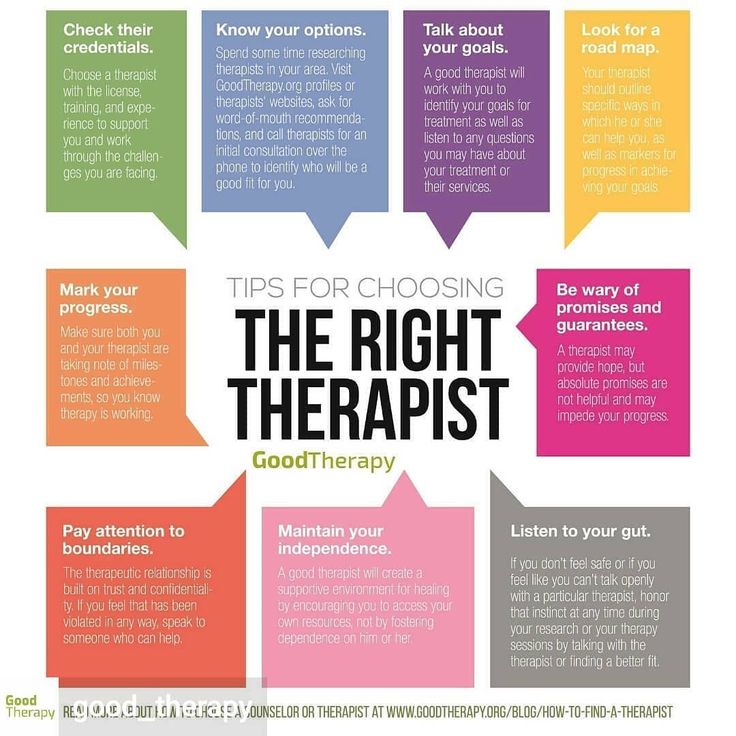
Is this familiar? Where else in your life have you felt this way? Is this the first relationship where you’ve felt this kind of negativity? Is it possible that you’re seeing mom’s critique when your therapist is giving a harmless comment? Could this be an opportunity to tackle some issues from your past? If you can identify this fear of rejection and name it as such, it could help you manage the feelings. Changing your conversation from “You hate me” to “I’m getting that feeling that you hate me again” makes it a topic you consider together rather than an absolute truth.
Is it relevant to your issue? Let’s take two scenarios where you might feel animosity. Suppose you’re seeing an older female therapist to 1. address your fear of flying, or 2. to resolve issues involving a negative older female figure in your life. In scenario #1, the negativity isn’t relevant to your issues, so it's just getting in the way. You can see how scenario #2 might more easily trigger a sensitivity to criticism and rejection from an older female, and may even have the potential to be of more help—if the issues can be addressed and resolved, you’ll have one experience of healing a relationship with an older female, which may have implications elsewhere.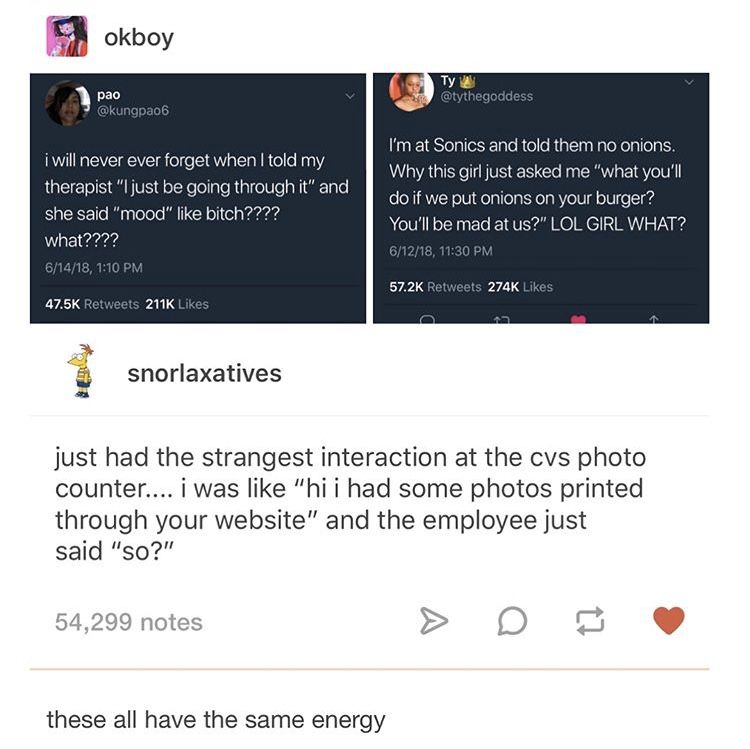
Can you talk about it? Fictional Reader has tried to talk this over in therapy, but many people don’t. If you think your therapist hates you, I’d say this is the only thing worth talking about until you leave or resolve the issue. Any other advice, insights, or comfort you receive from the therapist will be tainted if the relationship is troubled, so you might as well dive into this first. How do you bring it up? I’d start with the data, then how it makes you feel: “When I talk about my boyfriend I think you’re looking at me with disgust, and then I feel afraid that you hate me. Can we talk about this?” It may be a difficult discussion to raise, but a mature therapist should be able to respond constructively. And if they can’t...
Why stay? Assuming your therapist does have strong negative feelings toward you, or she isn’t able to process your feelings, why stick around? You are the consumer of services, if you aren’t getting what you want, you have every right to speak up and/or take your business elsewhere. Are you afraid to leave? Do you question how you’re reading the signals? Are you avoiding the confrontation? If you’re truly floundering in the office of a negative or unhelpful therapist, leaving may be the best way to take care of yourself.
Are you afraid to leave? Do you question how you’re reading the signals? Are you avoiding the confrontation? If you’re truly floundering in the office of a negative or unhelpful therapist, leaving may be the best way to take care of yourself.
In therapy, you’re opening up your life to a stranger, hoping your concerns will be accepted and understood. When you instead perceive judgment and scorn, the safe space of therapy becomes treacherous. Sometimes this perception is more about your issues and can help unlock helpful insights, but the trick is finding out when staying is worthwhile. Words are your best means to evaluate this negativity, or at least give you a clearer view of what’s going on.
6 fake signs that a guy likes you
Sometimes people show signs of attention, but it is not clear whether they like us romantically or just friendly sympathy. Or maybe even a wake-up call. We figured out where the green light really is, and where is the signal that nothing will work out.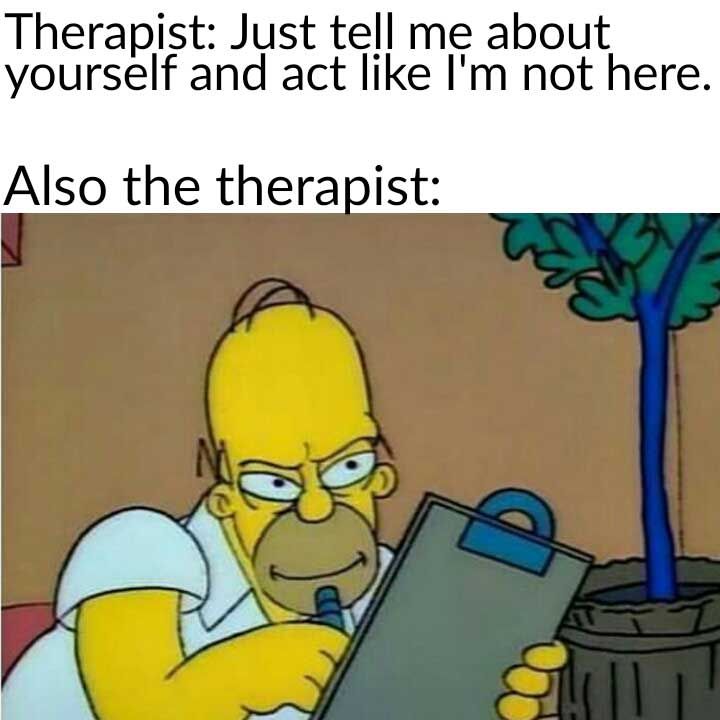
We have a telegram channel! Subscribe to be the first to read the most interesting articles and participate in discussions.
Myth: a person does not respond to messages because he is in love and wants to pique my interest
How it really is
In reality, you can be ignored for a variety of reasons: perhaps the person really decided to stir up your interest, or maybe he is busy, or something unforeseen happened. Or he simply does not say directly that he is not interested in you, so as not to offend. Psychologist Martin Nemko argues that ignoring gives the second person a feeling of uncertainty and insecurity. You may not understand whether you are being rejected or not.
In such cases, Nemko advises politely but directly to ask what is the matter. This way you can clarify the situation.
This way you can clarify the situation.
Kristina Prokofieva
REPT-therapist, CBT-therapist, graduated from the Faculty of Psychology of Moscow State University, 6 years of experience
It is important to consider your communication in a complex way. If you see the positives, have you noticed the negatives as well? If a guy ignores you, does he make up for it with other signs of attention? To interpret someone else's coldness as something exceptionally good is to idealize a person and plunge into fantasies about him. But fantasies may not come true - and if they do, it may not be easy.
Myth: A person is either affectionate or cold because that's how strong relationships start
Reality relationships. In some cases, this can really revitalize the senses, especially if the roller coaster is associated with positive emotions. However, if the dramatization is closely intertwined with the negative, then it is more likely to result in a breakup.
However, if the dramatization is closely intertwined with the negative, then it is more likely to result in a breakup.
University of Illinois researcher Brian Ogolsky found that couples in which an emotional rollercoaster regularly causes negative emotions in lovers break up twice as often as those in more stable relationships.
Kristina Prokofieva
REPT-therapist, CPT-therapist, graduated from the Faculty of Psychology of Moscow State University, experience 6 years
Not everyone knows how to deal with their feelings, including sympathy. Emotional swings can be inherent in a person with an anxious-avoidant attachment type.
Usually, the anxious-avoidant type of attachment is formed in childhood, when parents are inconsistent and unpredictable: sometimes they respond to the child's call, sometimes they don't, sometimes they allow something, sometimes they forbid it, sometimes they scold it, sometimes they ignore it. So anxiety and misunderstanding ripen in the child, what to expect from the most important object in the world: will it really be there when it hurts and is scary, or is it not?
So anxiety and misunderstanding ripen in the child, what to expect from the most important object in the world: will it really be there when it hurts and is scary, or is it not?
A child with this type of attachment adapts to the unstable emotional state of his parents. And growing up, he arranges emotional swings in his relationships. Sometimes he gets closer, sometimes he moves away, because for him, intimacy and close relationships are about instability and duality.
Myth: control and prohibitions are always signs of care and sympathy
How it really is
According to psychologist Lisa Frontes, when a partner forbids you to leave the house without him, does not allow you to communicate with people he does not like, insisting that the girl dress more “modestly” is not a concern, but a manifestation of control. Over time, a girl who gets into such a relationship may lose the feeling that she has the right to her own point of view.
Over time, a girl who gets into such a relationship may lose the feeling that she has the right to her own point of view.
The controlling partner can become a filter of the outside world. Those who are isolated face low self-esteem and hardly remember what they themselves once thought, felt and believed in something.
Lisa Frontes believes that a partner is controlling, not caring, if he:
-
decides how you should spend your time;
-
sets the rules in every little detail, for example, makes you clean according to the schedule that he came up with;
-
lowers self-esteem, attributing negative qualities to you;
-
makes you prove your love by breaking your personal boundaries. For example, it requires a password from the phone.

Myth: when I see people flirt with others to make them jealous
How it really is
Psychologist David Bass believes that flirting with others can really be a provocation. This is one of the manipulations, the purpose of which is to find out how much the partner needs the relationship and whether it is necessary to invest emotions in them. However, most often jealousy is caused when people are already in a relationship.
In this case, family therapist Laurie Gordon suggests identifying what makes you jealous and what upsets you about the person's behavior. Then you should talk to him, but not accusingly, but explaining exactly how you feel.
The conversation can be structured like this:
" I noticed, , that you were unusually friendly with that woman at the party.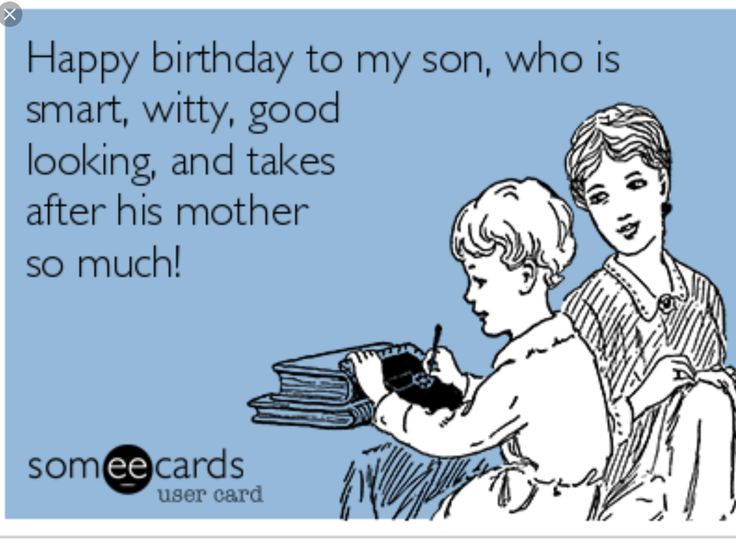 "
"
" I guess that means, , that you're upset about something."
« I'm wondering what is the matter and is there any subtext in this.
In this way, the person will not feel guilty, but at the same time will be able to answer your questions directly.
Kristina Prokofieva
REPT-therapist, CPT-therapist, graduated from the Faculty of Psychology of Moscow State University, experience 6 years
People can flirt for different reasons. And not only to cause jealousy. Maybe the process itself is pleasant to the partner or the other girl likes it, and it’s not about you at all. But maybe he wants to tell you something, but doesn't know how. The context is important here. If you're already in a romantic relationship, it's best to ask directly so as not to fuel this "game".
Also, communication with someone else, provided that you are already in a relationship, may be associated with a fear of getting close to a partner. A person is afraid that if he gets close, he may eventually be abandoned. This is typical for people with an anxious-avoidant type of attachment.
Myth: If a person is jealous for no reason, then he cares about me
How it really is
According to psychologist Stephanie Ortig and psychiatrist Francesco Bianchi-Demiceli, there are two types of jealousy: “normal” and “delusional”. "Normal" jealousy manifests itself when there is a real threat to the relationship, for example, another person shows signs of attention to a partner. The "delusional" persists despite the absence of any real or even probable threat. At the heart of "delusional" jealousy may be the fear of being not only abandoned, but also humiliated.
The "delusional" persists despite the absence of any real or even probable threat. At the heart of "delusional" jealousy may be the fear of being not only abandoned, but also humiliated.
The person probably likes you but doesn't know how to keep the relationship going. Psychological studies show that most often jealous people are people with an anxious type of attachment. Since they have a distrust of their partner, they are more likely to become jealous, including for no reason.
Myth: a person says that he is interested in me, but does not offer to start a relationship. He definitely likes me, he's just shy
Really
Psychologists Edward LeMay and Noah Wolf found that a person who feels sympathy for a friend can see romantic feelings where there are none. People want to believe that their sympathy is mutual, although in reality it is not.
People want to believe that their sympathy is mutual, although in reality it is not.
Their survey also showed that the behavior of people in love becomes more proactive. Over time, in some cases, this did lead to romantic relationships. However, it is worth remembering that this does not always happen, and sometimes interest can only be a manifestation of friendly sympathy.
Kristina Prokofieva
REPT-therapist, CBT-therapist, graduated from the Faculty of Psychology of Moscow State University, experience 6 years
When a person is faced with uncertainty, he begins to think. The psyche gives rise to possible scenarios to outline the near future, as if trying to control it. A person does not tolerate ambiguity, so he thinks out the details in order to protect himself.
But really it's better to just ask what exactly the guy means.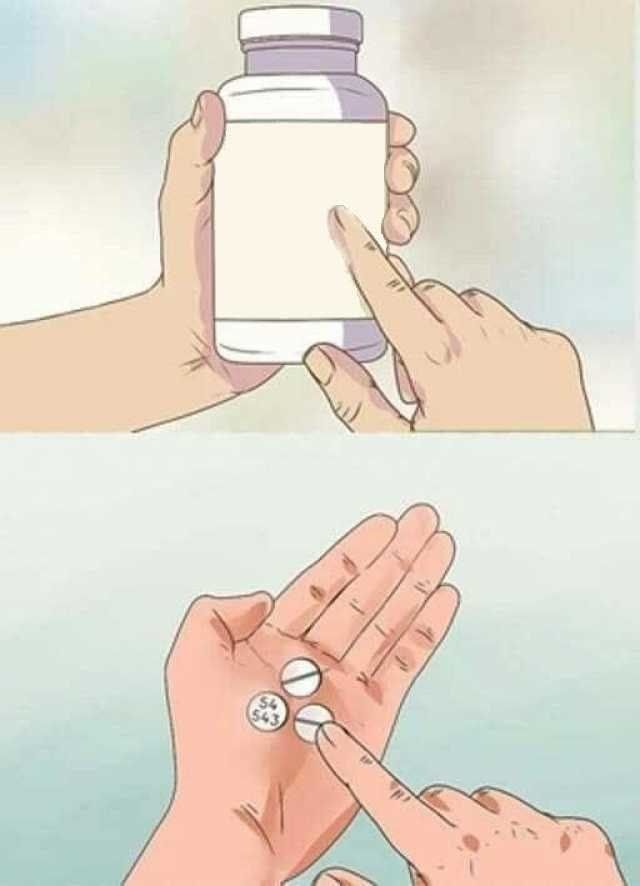 The phrase "I'm interested in you" can mean both friendly and romantic overtones. I think, in order to clarify the situation, you can ask in response to this: “What does this mean to you?” or “What do you put into it?” This will help you better understand the intentions of the other person.
The phrase "I'm interested in you" can mean both friendly and romantic overtones. I think, in order to clarify the situation, you can ask in response to this: “What does this mean to you?” or “What do you put into it?” This will help you better understand the intentions of the other person.
5 signs your boss doesn't like you and how to deal with it | Lifestyle
An employee who does not dream of career growth is bad. But if your relationship with the boss is not working out for you, then moving up the career ladder can be very problematic. Let's try to figure out how to determine that your boss does not like you.
-
The boss constantly finds fault with you
He finds fault with you often and for the slightest reason. If at the same time his claims concern not only your work, but also your appearance, your habits and manners, then he clearly does not like you as a person. What's more, you seem to annoy him a lot. As a rule, such claims and ridicule are often unexpected and expressed in front of everyone, as if urging others to laugh at you. A very unpleasant situation, especially if things have gone too far and nitpicking has become a constant occurrence.
A very unpleasant situation, especially if things have gone too far and nitpicking has become a constant occurrence.
-
Your boss rarely talks to you directly
Your boss hardly ever talks to you, doesn't ask questions, doesn't ask for your opinion on work issues, but he communicates a lot and consults with other subordinates. In a general conversation, he often ignores you or pretends not to hear you. Serious reason to think. This is one of the surest signs that you are not loved.
-
You are not assigned important tasks
You should be alerted if responsible projects, and even more so those that can promote career growth or for which bonuses are paid, never get to you. Even if you volunteer, the boss invariably chooses another employee. You are clearly not trusted or disliked, or, alternatively, afraid of competition.
-
You have been overwhelmed with work
The situation is the opposite of the previous one. If you are bombarded with endless assignments, often of no real value, constantly forced to stay late, go to work on weekends and on vacation, while such work is not paid, and your attempts to object do not lead to anything, you are clearly not sorry. Hence the logical conclusion that the boss, strictly speaking, does not care about you. Alternatively, the boss deliberately creates time trouble for you in anticipation of when you make a mistake, or maybe even in this way the management forces you to leave.
If you are bombarded with endless assignments, often of no real value, constantly forced to stay late, go to work on weekends and on vacation, while such work is not paid, and your attempts to object do not lead to anything, you are clearly not sorry. Hence the logical conclusion that the boss, strictly speaking, does not care about you. Alternatively, the boss deliberately creates time trouble for you in anticipation of when you make a mistake, or maybe even in this way the management forces you to leave.
-
Lack of rewards and promotions
You don't receive salary increases, you don't get bonuses, you don't get nominated for awards, and you don't get the higher position once again. At the same time, the rest of the colleagues are all right with this. A clear sign that you are not appreciated and you are not valued.
What to do if most or even all of the above signs matched?
To begin with, let's sort it out and, most importantly, try to assess the situation soberly. Are you disliked as a person or as an employee? Throw away resentment and emotions and think about how fair the actions of the boss are. Does he make claims to you only for work, while he prefers to do this not in front of everyone? Do your colleagues also criticize you or just point out your mistakes? Have you ever let the team down? Perhaps the fact is that you really often make mistakes. Try to be honest with a colleague you trust. From the side it is always more visible.
Are you disliked as a person or as an employee? Throw away resentment and emotions and think about how fair the actions of the boss are. Does he make claims to you only for work, while he prefers to do this not in front of everyone? Do your colleagues also criticize you or just point out your mistakes? Have you ever let the team down? Perhaps the fact is that you really often make mistakes. Try to be honest with a colleague you trust. From the side it is always more visible.
If you are more than confident in your competence, then it is quite likely that your boss sees you as a strong competitor and is trying to get rid of you through constant complaints. If nagging is more often personal, you are not loved as a person.
If the boss does not invite you to meetings, does not send you on business trips, for advanced training, does not discuss work issues with you, then it seems that as a professional he does not appreciate you highly. Or not appreciated at all.
If serious projects are invariably assigned not to you, but to your colleagues, then most likely the boss does not trust you as a specialist. It is unlikely that your boss is ready to give a responsible task to less qualified employees and jeopardize the workflow just to spite you. Of course, if the boss is a "tyrant", this option is also possible. But if, as mentioned above, you are absolutely confident in yourself, perhaps the boss is again afraid of competition on your part, or really disliked you very much.
Pay attention to your boss's attitude when it's not about work. If the boss asks how your weekend went, remembers your personal problems and wonders if things are getting better for you, knows the names of your family members and your pets, this is a sign of his good disposition towards you as a person. If he himself shares with you the details of his personal life, this shows his friendly disposition towards you and, most importantly, says that he trusts you. Personal trust is worth a lot. At the same time, as a competent specialist, the boss may not appreciate you.
If, on the other hand, your boss only discusses business matters with you and never touches personal matters, remember if he discusses personal matters with other subordinates.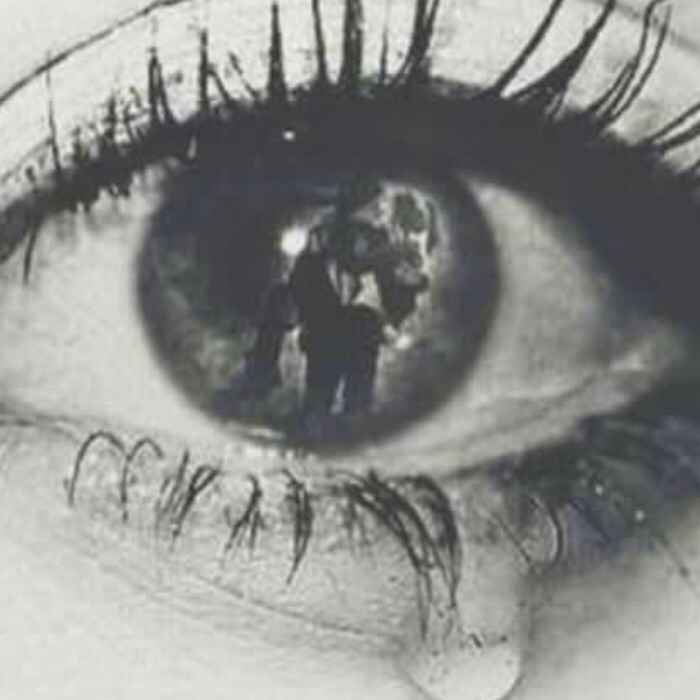 If so, then he probably appreciates you as an employee, but for some reason does not want to get close to you. Perhaps he does not trust you or you are unsympathetic to him. Or maybe you are just too different and have no common interests.
If so, then he probably appreciates you as an employee, but for some reason does not want to get close to you. Perhaps he does not trust you or you are unsympathetic to him. Or maybe you are just too different and have no common interests.
Conduct a mental analysis of the situation and, provided that you are honest with yourself, it will become clear to you how justified the hostility of the leadership. Here are some tips on how to resolve the problem, if it really is.
- If you have a good personal relationship with your boss but notice that your boss is ignoring you as a professional, don't despair. A good personal relationship is already the key to success. And it's never too late to increase your value as an employee. Offer to help your boss solve a work problem, read additional materials on your professional topic, try to keep abreast of innovations in your industry and sooner or later you will increase your value in his eyes.
- If your boss's negative attitude is based on personal animosity, but your boss is generally a good person, a face-to-face conversation can help.
 Explain to him how hard it is for you to work in this situation. Ask him to tell you the reason for his dissatisfaction with you. Your boss is human too. Perhaps you yourself, without noticing, said something offensive to him. Or your careless words, dropped somewhere, discredited him in the eyes of higher authorities. Please advise how to remedy the situation. Speak calmly. In no case do not try to "sort things out", especially in front of everyone. This can only further turn him against you and exacerbate the problem.
Explain to him how hard it is for you to work in this situation. Ask him to tell you the reason for his dissatisfaction with you. Your boss is human too. Perhaps you yourself, without noticing, said something offensive to him. Or your careless words, dropped somewhere, discredited him in the eyes of higher authorities. Please advise how to remedy the situation. Speak calmly. In no case do not try to "sort things out", especially in front of everyone. This can only further turn him against you and exacerbate the problem.
- If you are still confident in your professional qualities, if you think that the matter is only in the bad character of your boss and your colleagues confirm this, then you should try to defend yourself. Make it clear to the boss that he has no right to make unfounded claims and get personal. Clearly discuss your job responsibilities and, if necessary, recall the job description. The main thing is to remain calm, it is not in your interest to spoil relations with management.


